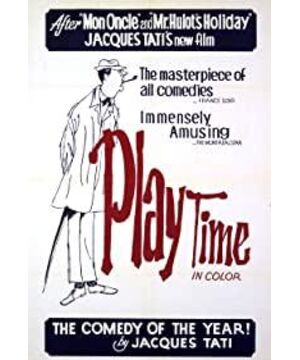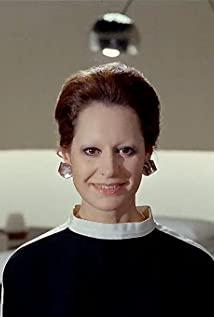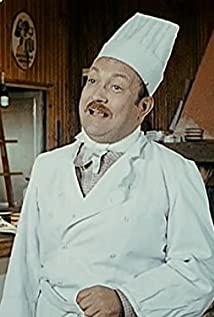In a way, Tati's 1967 comedy "Playtime" is comparable to Chaplin's "Modern Times." With a pipe in his mouth, an umbrella and an unsteady and unsettled outfit, M. Hulot is like that Charlot, who wears a bowler hat, holds a cane and walks like a duck. It doesn't require any antics to please the audience, but it always makes people shudder with laughter.
M. Hulot came to Paris to find a gentleman who worked in a glass building. In fact, this Paris is a new "city" built by Tati on the outskirts of Paris. In this carefully constructed "city", we see that all the buildings are glass structures like this: right angles, transparency, and precision. Mr. Hulot could not move freely in such a space, he waited anxiously in a room, when he wanted to sit down, he found that his chair was made of materials that would automatically recover after deformation, and 'during the recovery process Makes very funny sound effects. This kind of design can be seen everywhere in the movie, the silent door, the guiding light in the direction of the door, the arched but smaller than the plate delivery window... These whimsical ideas seem to benefit human beings for granted, but they have never been Don't ask if we really need it. When a person slams a door, it is to convey an emotion of anger, and a silent door filters out such an emotion. This absurdity was brought out by the chairman of the invention, who, out of a misunderstanding, was going to get mad at Mr. Lowe, and we saw the comical effect when he slammed the door in anger. We can also see some opposite examples, a passenger squeezed into a bus with a newly bought lamp, but his lamp was used as the handrail of the bus. This is exactly the paradox of modernity, where the entire film talks about how science and civilization are misused.
Along with Mr. Hulot in Paris was an American tour group, in which a Miss America was melancholy about the Paris in front of her. When she spotted an old flower-selling lady on a street corner and tried to take a photo of her to get a real Paris photo, pedestrians kept breaking into her frame until she became the subject of another photographer. There is a mirror-image relationship here, in which she and M. Hulot are in turn the intruders of the artificial Paris in front of them. They broke into the city and they wreaked havoc. The destruction happened in a restaurant that just opened, and the restaurant scene was very well planned. The design of this restaurant is gorgeous but not functional, like those glass buildings, people are arguing and nitpicking, the waiters are in constant condition, the decoration has been damaged, and the customers can't really eat here. M. Hulot wreaked havoc as soon as he appeared, smashing the transparent glass door without noticing it. Still, the doorman held up the handrail and pretended that the glass was still there. However, as the damage increased, the restaurant was unable to maintain its original elegant layout until the ceiling of the restaurant collapsed. Surprisingly, we found that such devastating damage did not cause the gentlemen and ladies to panic, on the contrary, they were immersed in the devastation brought by Mr. Lowe, Miss America replaced the original jazz band, and the customers were nonchalantly in. Dancing and dining turned into a carnival of great human unity. There was no doubt that something was broken, and that thing was the clear glass. The next morning Miss America finally got the real Paris she wanted and got a symbolic gift from Mr. Hulot: a bouquet of plastic flowers.
Hulot has no lines in the film, and as Tati said, the dialogue is unimportant to him. The entire film of "Playtime" was filmed silently, and all the sound effects were produced separately in the later stage, which allowed the director to construct this surreal space more freely, presenting this stunning visual spectacle. Thanks to the 70mm film, the visual elements in the picture are very rich, and the fixed long lens makes the picture look like an old photo with a sudden sound. Some scenes even so prophetically happened today that people sometimes wonder if Tati once traveled through time and let people in the 1970s see the absurdity that happened today in advance.
View more about Playtime reviews











